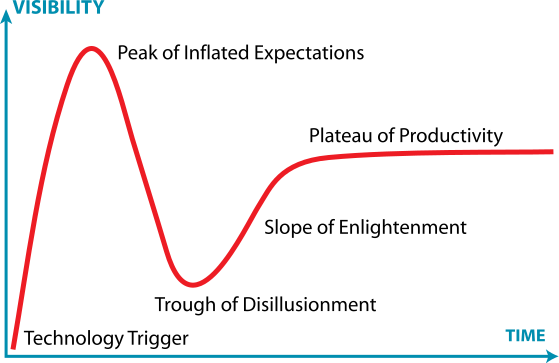
The brain craze was bound to go through the usual hype cycle, so we shouldn’t be surprised that some of us are rolling back our enthusiasms for brain-based explanations of, well, everything. Welcome to those slippery slopes between the peak of inflated expectations and the slope of enlightenment.
And welcome, too, to reconsiderations like that offered here by Matthew Hutson, a science writer and former cog neurosci student who reviews recent books by Gioavanni Frazetto (on the neuroscience of emotion), Scott Weems (neuroscience on humor), and the ever-fascinating Stanlislas Dehaene (neuroscience of consciousness, or just about everything). We need more of this.
Heidegger, Caravaggio and Proust were not neuroscientists, and we should be grateful; if they were, they might have had less to tell us about the life of the mind. Frazzetto acknowledges as much. “When I experience or examine an emotional incident along my trajectory as a man, a friend, a lover, a son or a colleague,” he writes, “the first reservoir of knowledge I consult for explanations and meaning is hardly ever neuroscience.”
This is not to say we shouldn’t study the brain — not by a long shot. Neuroscience is interesting in its own right, in the way it’s interesting to learn about how stars form or how computers work. And it’s immensely practical when something goes wrong with the brain and you need to poke around. But it lends little insight into the felt experience of emotion. We learn the triggers and salves of our feelings through daily experience and introspection, and through psychological experiment.
This is a nice compact treat: Books about the brain: ‘Ha!,’ ‘Joy, Guilt, Anger, Love’ and ‘Consciousness and the Brain’ – The Washington Post.